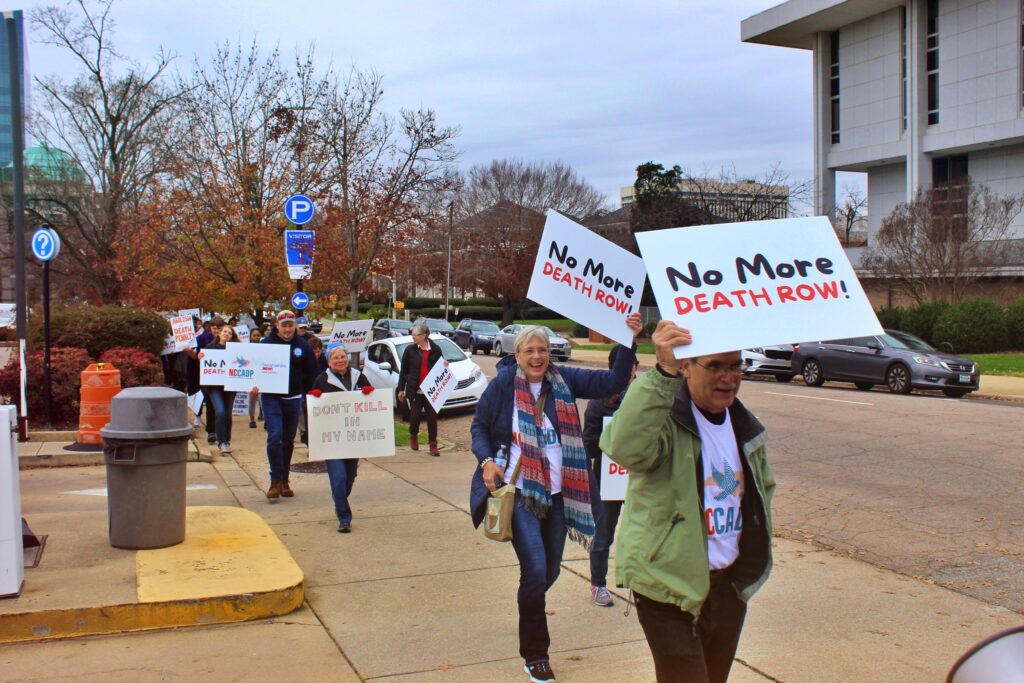
FOR IMMEDIATE RELEASE
April 29, 2025
Contact: Noel Nickle, (828) 775-9912
RALEIGH — Today, the Judiciary 2 House Standing Committee will consider a new bill, HB 270, which would alter current law by adding electrocution and firing squad as authorized methods of execution alongside lethal injection. The harmful impact of executions on prison staff is well documented, and includes serious mental health symptoms such as insomnia, panic attacks, substance abuse, and post-traumatic stress disorder. HB 270 would only cause further harm to corrections officers by requiring them to carry out brutal execution methods.
There are 121 people on North Carolina’s death row, but the last time an execution occurred was in 2006. Executions are on hold while the courts decide how to apply the NC Racial Justice Act to all death sentences. A ruling issued in February 2025 found there was race discrimination in a capital case. That decision under the Racial Justice Act is now on appeal.
“House Bill 270 does nothing to improve public safety, and it increases harm to those tasked with carrying out executions,” said Noel Nickle, Executive Director of the North Carolina Coalition for Alternatives to the Death Penalty. “It forces our already overburdened state employees to carry out executions using violent methods we know will be extraordinarily damaging to their mental health.”
Holly Sox understands the devastating impact of executions on prison staff all too well. Her father, Jerry Flake, worked as the night shift nursing supervisor for the South Carolina Department of Corrections and participated in 24 executions from 1985 to 2000. “Memories of executions haunted my father. He suffered nightmares, some so intense he would thrash about and fall from the bed,” said Sox. “People tend to only consider the life of the defendant and the victims, but they fail to consider the impact that executions have on staff and their family members. My father was never the same after participating in executions. I know he would oppose this bill.”
We also know more today than we ever have about the death penalty’s flaws. There is zero valid evidence that it deters crime. In fact, states without the death penalty have lower homicide rates than states that retain it. The death penalty costs NC taxpayers millions annually, while doing nothing to reduce crime or increase public safety.
Rather than expand the available methods of execution, North Carolina must invest in programs that will decrease violent crime and increase support for victim services that bring about healing. “Expanding methods of execution does nothing to help me heal from the murder of my son, Brian,” said Alleghany County resident Lynda Simmons. “In fact, I believe the death penalty perpetuates violence. I would rather see my tax dollars used for much needed services for victims’ families.”
###
The N.C. Coalition for Alternatives to the Death Penalty (NCCADP.org) is a grassroots collective of 23 partner organizations committed to ending the death penalty and creating a new vision of justice in North Carolina. Contact Noel Nickle at noel@nccadp.org or (828) 775-9912.


